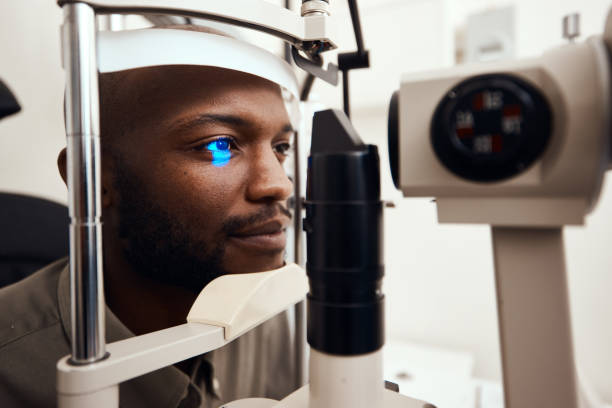Ophthalmologist lists symptoms that warn of eye disease: 'Early diagnosis can prevent deterioration.'

According to figures from the National Institute for the Blind (INCI), approximately 2 million people in the country live with some degree of visual impairment. The most common causes include cataracts, glaucoma, macular degeneration, and retinal diseases, including diabetic retinopathy.
Ophthalmologist Camilo Sánchez explained that, in addition to refractive errors such as myopia and astigmatism, there are conditions that can permanently compromise vision.
"Probably the most common are cataracts, retinal diseases, and a condition called glaucoma. These are the ones that can most significantly reduce a person's visual capacity," the specialist noted.

The most common diseases are cataracts, glaucoma, macular degeneration, and diabetic retinopathy. Photo: iStock
The expert listed signs that can warn of serious problems:
- Loss of vision, even partial or progressive.
- Distortion of straight lines, which begin to look wavy.
- Persistent eye pain and redness.
- Appearance of bright flashes or “lightning” (photopsia).
Regarding this last symptom, Sánchez clarified: "They can indicate a problem with the retina, specifically called retinal detachment. The initial symptom can be the appearance of small lights, flashes of light, which is why it's extremely important to seek medical attention early."
Associated risk factors The doctor warned that diabetes, high blood pressure, high cholesterol, and high triglycerides increase the likelihood of vision complications.
"Approximately 8 to 9% of the population in Colombia is diabetic, and every patient should have a checkup with an ophthalmologist once a year to detect diabetic retinopathy," he said.
Smoking also poses a risk: “Not smoking is extremely important, because smoking increases the risk of developing retinal diseases,” he said.

In Colombia, 2 million people have some degree of visual impairment. Photo: iStock
In response to concerns about the impact of prolonged use of electronic devices, Sánchez clarified that they do not cause irreversible damage, but they do cause eye strain.
“There's a myth surrounding screens, but they actually cause discomfort, not serious illnesses. In young people, however, there has been an increase in refractive errors, particularly myopia, due to prolonged exposure ,” he explained.
Habits and prevention The specialist recommended adopting self-care measures to preserve vision:
- Physical exercise: helps prevent hypertension, diabetes and dyslipidemia.
- A balanced diet: green leafy vegetables, carrots, fatty fish such as salmon and tuna, and nuts contribute to the proper functioning of the retina.
- Eye protection: Use safety glasses during risky activities, both at work and at home.
- Active breaks : necessary for those who work in front of screens to reduce eye strain.
Sánchez insisted that the key is early detection. "There are causes of vision loss that can be corrected, and deterioration can be prevented as long as an early diagnosis is made," he emphasized.
More news in EL TIEMPO *This content was rewritten with the assistance of artificial intelligence, based on information from City TV, and reviewed by a journalist and editor.
eltiempo




